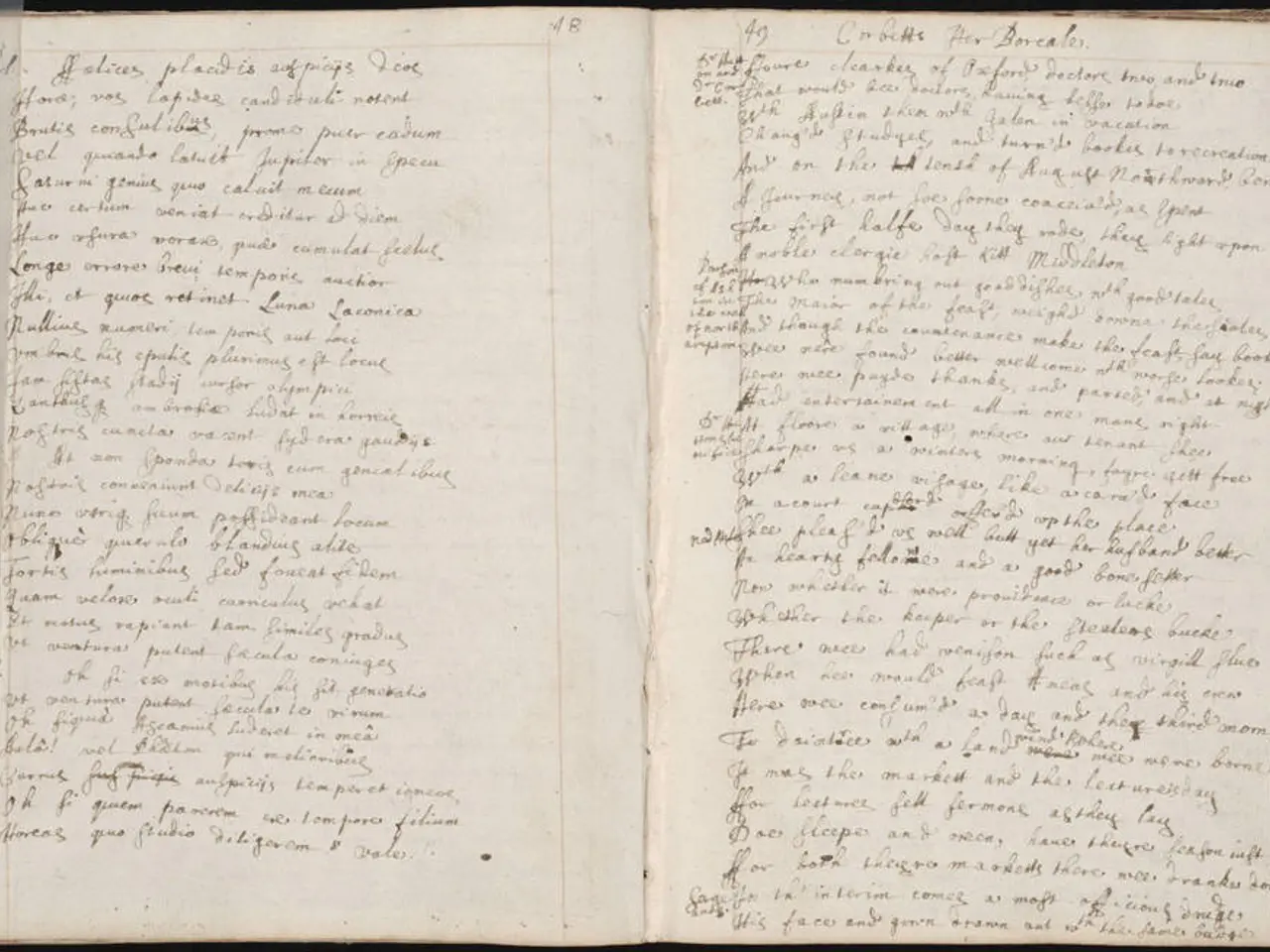Unyielding Bondage: Modern-day Slavery Persists in the United States
The upcoming U.S. elections on November 5, 2024, are set to be a significant decision not only for American citizens but also for the rest of the world. The Electoral College, a system unique to the United States, will once again play a decisive role in electing the president.
In this system, voters are actually casting ballots for a group of people known as electors. Each state has a number of electors equal to its total number of senators and representatives in Congress, totalling 538 electors nationwide. A candidate needs at least 270 electoral votes to secure the presidency [1][3][4].
Electors are chosen by political parties in each state before the election. On Election Day, voters in each state effectively choose their preferred presidential candidate, which in turn selects that candidate's slate of electors. In most states, the winner-take-all rule applies, meaning the candidate who wins the popular vote receives all the electoral votes [1].
The exceptions are Maine and Nebraska, which allocate electoral votes partly by congressional district. Electors meet in their respective state capitals in December after the election to formally cast their votes for president and vice president on separate ballots [1][3][4].
The Electoral College system can produce results different from the national popular vote. A candidate can win the presidency without winning the popular vote, as seen in 2000 and 2016 when Republicans George W. Bush and Donald Trump became president despite not receiving the most votes nationwide [1][4].
This discrepancy between the popular vote and the Electoral College outcome influences presidential campaign strategies. Candidates often focus on swing states, where the electoral vote outcome is uncertain, rather than large-population states with predictable results [1].
In the 2024 elections, the focus is on the Swing States, where approximately 47 million eligible voters are likely to vote either narrowly for Harris or for Trump, determining the election outcome [5].
The Electoral College was written into the Constitution in the late 18th century, and its purpose was to address the threat of secession from southern states, who feared disadvantage in a direct election due to fewer voters [6]. Southern states also sought to protect slavery by ensuring their income from plantation agriculture would influence the presidential office [6].
Polly Baca, an 83-year-old Colorado woman, expressed her concern four years ago that the electoral system doesn't work fairly. However, no changes have been made since then [2]. Polly Baca voted for Joe Biden as an elector on December 14, 2020 [2].
The debate over the Electoral College continues, with 58% of Americans supporting a switch to a national popular vote as of September 2024 [1]. Yet, no major constitutional amendment to eliminate or significantly change the Electoral College has succeeded, ensuring it remains the system for the 2024 election [1].
Campaign spending affects a very small percentage of the electorate, with just one percent of voters potentially deciding the election [5]. This leaves campaigning largely neglected in states like Wyoming and California, where political dominance by the Democrats in Wyoming and the Republicans in California renders campaigning unnecessary [5].
For more insights on the mood and issues in the country, candidates and their visions, and the outcome of the U.S. election, visit this link [5].
[1] https://www.usatoday.com/story/news/politics/elections/2020/11/03/electoral-college-explained-how-it-works-and-why-it-matters/6120541002/) [2] https://www.denverpost.com/2020/12/14/colorado-electors-cast-votes-for-president-joe-biden/ [3] https://www.history.com/news/electoral-college-explained [4] https://www.britannica.com/topic/Electoral-College [5] https://www.nd.de/ [6] https://www.history.com/news/electoral-college-slavery-civil-war-constitution
- The upcoming U.S. elections in 2024 are significant, affecting not only Americans but also the global community.
- Each state has a number of electors equal to its senators and representatives in Congress, totaling 538 electors.
- On Election Day, voters in each state choose their preferred presidential candidate, who in turn selects the slate of electors.
- The winner-take-all rule applies in most states, meaning the candidate who wins the popular vote receives all the electoral votes.
- Maine and Nebraska allocate electoral votes partly by congressional district, differing from most states.
- Electors meet in state capitals after the election to formally cast their votes for president and vice president.
- A candidate can win the presidency by receiving at least 270 electoral votes, as seen in 2000 and 2016.
- Strategies of candidates in the 2024 elections focus on Swing States, determining the election outcome.
- Polly Baca, an 83-year-old woman, expressed concern that the Electoral College doesn't work fairly in 2020, but no changes have been made since.
- Approximately 47 million eligible voters are likely to decide the 2024 elections in the Swing States.
- The Electoral College was written into the Constitution to address the threat of secession and to protect slavery.
- The Electoral College continues to be a topic of debate among 58% of Americans, who support switching to the national popular vote.
- Despite the debate, no major constitutional amendment to eliminate or significantly change the Electoral College has succeeded.
- Campaign spending affects only a small percentage of the electorate, neglecting states like Wyoming and California.
- The electoral system's focus on Swing States can lead to a lack of attention paid to large-population states with predictable results.
- Candidates often focus on swing states rather than large-population states with predictable results due to the Electoral College.
- For more insights on the elections, visit the provided link.
- The article in the Denver Post reported that Polly Baca voted for Joe Biden as an elector in December 2020.
- The history of the Electoral College can be found on the History.com website.
- The Britannica website offers more information on how the Electoral College works and its significance.







